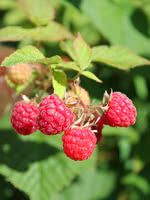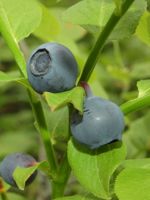Mon-Fri 9am - 5pm Mountain time
Nova Raspberry vs Bilberry
Rubus x Nova
Vaccinium myrtillus
NOT AVAILABLE THIS SEASON - MIGHT RETURN
CUSTOM GROW
Taste is the reason people buy the Nova Raspberry.
Nova canes have very few spines. As it has a firmer berry, it is commonly planted for commercial plantings where a harvester is used.
The Nova Raspberry gets its name from where it was bred, in Nova Scotia. It was created to survive and thrive in the varying climates of Canada.
The Nova Raspberry is a fast-growing floricane. This means that raspberries will not grow on canes the year they first grow. The mature canes they do grow on, however, produce more berries than primocane varieties.
Bilberry is a native perennial shrub valued for its small, blue-black berries that ripen in mid to late summer. The berries resemble blueberries but have a richer, more tart, and intense flavor. They have long been used for fresh eating, baking, and preserves, while also providing food for birds and mammals. In spring, its delicate pinkish flowers attract bees and other pollinators.
Growing low to the ground, Bilberry forms spreading colonies that create dense understory cover. This growth habit provides food and shelter for wildlife, and its foliage adds seasonal interest by turning red to purple in autumn. With its adaptability and ecological benefits, Bilberry is well-suited for naturalization, ecological restoration, and pollinator gardens.
Nova Raspberry Quick Facts
Bilberry Quick Facts
Toxicity: leaves may be unsafe in high doses

